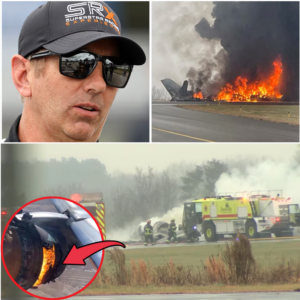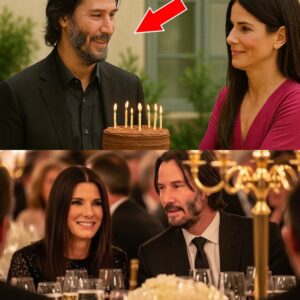The roar of 80,000 voices, a symphony of anticipation under the iconic arch of Wembley Stadium, is the kind of sound that could shake the foundations of London. On the balmy evening of September 12, 2025, as the final notes of Coldplay’s epic “Music of the Spheres” world tour hung in the air, frontman Chris Martin did something that turned a rock concert into a global cry for compassion. In a pause that felt both intimate and infinite, Martin halted the music, raised his arms, and invited the massive crowd to do the same—to send love rippling out into a fractured world. And in that electric hush, he named the grieving family of Charlie Kirk, the young conservative activist gunned down just two days earlier in Utah. “This isn’t left vs right anymore… it’s humanity vs insanity,” Martin declared, his voice a beacon cutting through the divide. What followed was a moment of raw, collective vulnerability—one that ignited cheers, boos, and a firestorm of debate across oceans and ideologies.
Wembley, that hallowed ground where legends are forged and hearts are mended, has witnessed its share of magic. From Freddie Mercury’s anthemic commands to Adele’s tear-streaked ballads, the stadium has long been a vessel for shared emotion. But on this night, as confetti cannons stood silent and the laser lights dimmed to a soft glow, Coldplay transformed the venue into a temple of empathy. The band, known for their cosmic anthems of hope and heartache, had just wrapped a tour that shattered records—over 225 dates, millions in attendance, and a message of interstellar connection woven through every chord. Yet, as they prepared to launch into “Fix You,” one of their most poignant pleas for healing, Martin stepped forward. “Let’s raise our hands like this and send love anywhere you wanna send it in the world,” he urged, his eyes scanning the sea of faces. “There are so many places that might need it today. So here it comes from London. You can send it to your brother or your sister. You can send it to the families of people who’ve been going through terrible stuff. You can send it to Charlie Kirk’s family. You can send it to anybody’s family. You can send it to people you disagree with, but you send them love anyway.”
The crowd’s response was a microcosm of our times: a wave of raised arms and glowing wrists, but also pockets of dissent—boos that pierced the unity like shards of glass. Videos captured on phones spread like wildfire, amassing millions of views within hours. Hashtags such as #SendLoveToKirk and #HumanityVsInsanity trended worldwide, blending fervent support with sharp backlash. For some, it was a profound act of transcendence, a reminder that grief knows no political borders. For others, it was an unwelcome intrusion, politicizing a space meant for escape. Martin’s words, delivered with his trademark earnestness, struck at the heart of a nation—and a world—still reeling from Kirk’s assassination on September 10.
Charlie Kirk was more than a name in the headlines; he was a whirlwind of conviction, a 31-year-old architect of change who built Turning Point USA from a college dorm room dream into a conservative juggernaut. Co-founded in 2012 with a mission to empower young voices on campuses dominated by progressive tides, TPUSA grew under Kirk’s charisma into a network spanning thousands of chapters, mobilizing voters, and challenging what he saw as the erosion of free speech and American values. With his rapid-fire debates, unyielding defense of the Second Amendment, and a social media savvy that turned policy into punchlines, Kirk became a darling of the right. He was a close ally to President Donald Trump, a frequent White House visitor, and a father whose young family—wife Erika and their two toddlers—embodied the future he fought for. Kirk’s life was a testament to bold ideas: rallies that drew tens of thousands, books that topped bestseller lists, and a podcast that dissected the day’s battles with wit and fire.
But on that fateful afternoon in Orem, Utah, at Utah Valley University, the script flipped into nightmare. Kirk had arrived for a routine Turning Point event—a Q&A under the autumn sun, surrounded by students hungry for his insights on everything from election integrity to cultural shifts. The crowd buzzed with energy, phones aloft, as Kirk paced the stage, his words a rallying cry against “the insanity of the left.” Then, a crack split the air. A single shot from a rooftop perch across the quad struck Kirk in the neck, dropping him in a pool of his own blood. Pandemonium ensued: screams, stampeding feet, security tackling shadows. Paramedics fought valiantly, airlifting him to a trauma center, but the damage was irreversible. By dusk, the world learned the unthinkable: Charlie Kirk, the unbreakable voice of a generation, was gone.
The shooter, 22-year-old Tyler Robinson, a disgruntled UVU dropout steeped in far-left online forums, was apprehended hours later in a dusty canyon hideout. Authorities described it as a calculated hit, fueled by Robinson’s obsession with Kirk’s “hate speech” against progressive causes. Evidence from his devices painted a chilling portrait: manifestos decrying Kirk as a “fascist enabler,” surveillance photos of the activist’s tour stops, and a final post vowing to “silence the oppressor.” The arrest brought no solace, only a deeper wound. Protests flared outside the university gates—conservatives demanding justice, counter-demonstrators clashing over Kirk’s legacy. President Trump, in a White House address laced with fury, called it “a barbaric assault on our democracy,” vowing federal resources to root out radicalization. Even across the pond, UK Prime Minister Keir Starmer weighed in, labeling it “a heartbreaking robbery of a young life and family.”
In the Kirk household, the silence was deafening. Erika Kirk, 29, the poised powerhouse who had been Charlie’s partner in mission and marriage since 2021, faced the abyss. A former TPUSA strategist herself, Erika had balanced boardrooms with bedtime stories, her faith a quiet anchor amid the chaos of public life. Now, with toddlers too young to grasp the void, she stepped into the spotlight with grace forged in fire. “Charlie didn’t just talk about freedom—he lived it, breathed it, built it for all of us,” she said in a candlelit vigil streamed to millions. “This isn’t the end; it’s a call to carry his torch higher.” Donations poured into TPUSA’s memorial fund, surpassing $10 million in days, as chapters nationwide doubled down on events. Erika’s resolve became a rallying point, her social media posts—photos of Charlie’s last family hike, quotes from his speeches—humanizing the hero into a husband, a dad, a dreamer cut short.
Enter Chris Martin, the unassuming everyman at the helm of Coldplay, whose own journey mirrors Kirk’s in unexpected ways. At 48, Martin has evolved from shy songwriter to stadium sage, his lyrics a tapestry of doubt and divinity. Coldplay’s ethos—love as rebellion, vulnerability as strength—has always courted controversy. They’ve headlined Glastonbury with pleas for planetary healing, drawn fire for corporate tie-ins, and navigated Martin’s personal odyssey through divorce and redemption. Yet, in naming Kirk, Martin bridged chasms he might never have crossed. Kirk himself had dismissed Coldplay as “banal” and “boring,” once quipping he’d “rather be caught dead” at their show. The irony wasn’t lost on fans: a liberal-leaning rocker honoring a Trump acolyte, urging love across the aisle in a city far from the fray.
The Wembley moment unfolded like a scene from one of Martin’s own songs—poetic, polarizing, profound. As hands rose in a forest of light, the stadium pulsed with “Fix You,” its opening piano notes a salve for the soul. Clips showed fans swaying, some in tears, others frozen in protest. Social media erupted: “Chris just reminded us music is for mending, not dividing,” one tweet read, racking up thousands of likes. Another fired back, “Lost a lifelong fan tonight—keep politics out of my playlist.” Boos rippled from sections, audible in raw footage, sparking think pieces on the perils of celebrity activism. Outlets from Fox News to The Guardian dissected it: Was this peak performative empathy, or a genuine stand against hate? Martin’s follow-up in interviews hinted at the latter. “In a world screaming at shadows, love is the loudest answer,” he told BBC Radio post-show, his voice soft but sure.
The backlash was swift and stratified. Progressive corners of X decried it as “platforming fascism,” with one viral thread calling Kirk “a divider in death as in life.” Conservative voices hailed it as vindication, memes flooding feeds of Martin as an unlikely ally. Even unrelated Coldplay drama resurfaced—earlier tour stops marred by Martin’s awkward onstage chats with Israeli fans, where he pledged to treat them as “equal humans” while nodding to Palestinian attendees—fueling accusations of selective solidarity. Yet, amid the noise, stories emerged of quiet bridges: a left-leaning concertgoer tweeting reconciliation after reflecting on the plea, or TPUSA volunteers attending a Coldplay listening party in solidarity. Martin’s gesture amplified Kirk’s final broadcast—a podcast episode decrying political violence—pushing streams past 5 million.
Beyond the stadium, the event rippled into real change. TPUSA announced expanded campus security grants, funded by tour-inspired donations. Mental health hotlines for radicalized youth saw spikes in calls, while lawmakers on both sides floated bills for speaker protections. Martin’s words echoed in global forums: UN panels on extremism cited “humanity vs insanity” as a mantra for de-escalation. For Erika Kirk, the tribute arrived like manna—a video montage from Wembley played at her vigil, fans’ lights flickering in proxy. “From a stage in London to our broken hearts in Arizona, thank you,” she posted, her words a fragile thread of thanks.
In the end, Chris Martin’s pause at Wembley wasn’t just a concert interlude; it was a manifesto in motion, a reminder that art thrives in the tension between worlds. Coldplay’s tour may have closed, but the conversation it sparked endures—a call to choose love over labels, sanity over strife. As the stadium lights faded that night, 80,000 souls carried a spark homeward. In a time when division feels like destiny, perhaps that’s the real encore: humanity, rising.





